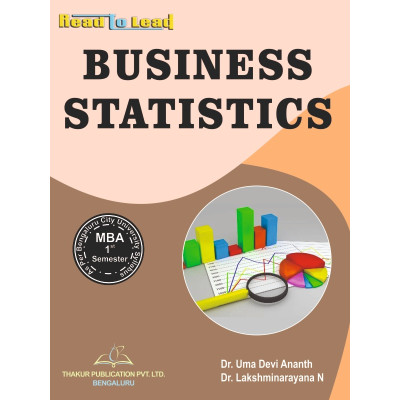Categories
- Pharmacy
-
Nursing
-
MBA
-
BBA
- U.P. State University
- Veer Bahadur Singh Purvanchal University, Jaunpur
- Chaudhary Charan Singh University, Meerut
- Dr. Bhimrao Ambedkar University, Agra
- Chhatrapati Shahu Ji Maharaj University, Kanpur
- Mahatma Jyotiba Phule Rohilkhand University, Bareilly
- Mahatma Gandhi Kashi Vidyapith, Varanasi
- Dr. Ram Manohar Lohia Avadh University, Ayodhya
- Deen Dayal Upadhyaya Gorakhpur University
- Prof. Rajendra Singh (Rajju Bhaiya) University, Prayagraj
- Raja Mahendra Pratap Singh University Aligarh
-
BCA
- UP State Universities
- University of Pune
- I.K.Gujral Punjab Technical University (PTU)
- University of Rajasthan
- Rashtrasant Tukadoji Maharaj Nagpur University
- Uttar Pradesh NEP2020
- University of Rajasthan ,Jaipur (According to NEP-2020)
- BCCA (B. Com - Computer Science)
- Haryana
- West Bengal
- BBA (CA)
- PUNE BCA (Sci,Commerce)/B.Sc (CA)
- Dr. A. P. J. Abdul Kalam Technical University, Lucknow ( AKTU )
- MCA
-
B Ed
- Lucknow University B.Ed Books
- Chaudhary Charan Singh University/Maa Shakambhari University, Saharanpur
- Dr Bhim Rao Ambedkar University, Agra
- Mahatma Gandhi Kashi Vidyapeeth, Varanasi
- Chhatrapati Shahu Ji Maharaj University
- Prof. Rajendra Singh (Rajju Bhaiya) University, Prayagraj (PRSU)
- Mahatma Jyotiba Phule Rohilkhand University(Mjpru), Bareilly
- Dr. Ram Manohar Lohia Avadh University, Ayodhya
- Bundelkhand University, Jhansi
- B.A,B.ed
- B.Sc, B.ed
- Deen Dayal Upadhyaya Gorakhpur University
- Veer Bahadur Purvanchal University (VBPU)
- Maharaja Suhel Dev State University ,Azamgarh (MSDSU)
- Raja Mahendra Pratap Singh State University, Aligarh (RMPSSU)
- Barkatullah Vishwavidyalaya (Bhopal)
- Jiwaji University (Gwalior)
- Vikram University (Ujjain)
- Dr. Harisingh Gour University (Sagar)
- Devi Ahilya Vishwavidyalaya (Indore)
- Rani Durgavati Vishwavidyalaya (Jabalpur)
- Awadhesh Pratap Singh University (Rewa)
- Maharaja Chhatrasal Bundelkhand University (Chhatarpur)
- D. EL. ED
- TET
-
B Com
-
B Sc
- B.Sc. U.P. State Universities Common Syllabus NEP
- Veer Bahadur Singh Purvanchal University, Jaunpur
- University of Lucknow
- Chaudhary Charan Singh University, Meerut
- Madhya Pradesh
- Chhatrapati Shahu Ji Maharaj University, Kanpur
- Dr. Bhimrao Ambedkar University, Agra
- Mahatma Gandhi Kashi Vidyapith, Varanasi
- DEEN DAYAL UPADHYAYA GORAKHPUR UNIVERSITY
- Prof. Rajendra Singh (Rajju Bhaiya) University, Prayagraj
- Dr. Ram Manohar Lohia Avadh University, Ayodhya
- Mahatma Jyotiba Phule Rohilkhand University, Bareilly
- Uttarakhand State Universities
- B.Sc. Bihar Universities Common Syllabus NEP
- University of Rajasthan (Jaipur)
- Haryana
-
Bachelor of Arts [B.A.]
- B.A. Of U.P. State Universities Common Syllabus NEP
- Veer Bahadur Singh Purvanchal University, Jaunpur
- University of Lucknow
- Chaudhary Charan Singh University, Meerut
- Chhatrapati Shahu Ji Maharaj University, Kanpur
- Dr. Bhimrao Ambedkar University, Agra
- Mahatma Gandhi Kashi Vidyapith, Varanasi
- Deen Dayal Upadhyaya Gorakhpur University
- Prof. Rajendra Singh (Rajju Bhaiya) University, Prayagraj
- Dr. Ram Manohar Lohia Avadh University, Ayodhya
- Mahatma Jyotiba Phule Rohilkhand University, Bareilly
- Madhya Pradesh
- Uttarakhand
- Bihar
- University of Rajasthan (Jaipur Syllabus as Per NEP2020)
- Haryana NEP-2020
- B Tech
- LLB
- SWA Education
Economics for Business Decisions

- Dr. Saroj Kumar,
- Mr. Vipin Singh
₹260.00
Tax excluded
Syllabus
ECONOMICS FOR BUSINESS DECISIONS
MODULE 1: INTRODUCTION
Introduction to Managerial Economics; The roles of the firm and the Household Decision Making in the Household - Consumer Choice. Theory of Demand; its Determination, Estimation and Forecasting. Economic principles relevant to managerial decision making. Opportunity cost, production possibility curve, concept of increments and margin, discounting principle, Theory of business firm.
MODULE 2: DEMAND ANALYSIS AND CONSUMER EQUILIBRIUM
Demand theory and analysis, Elasticity of Demand and its role in Managerial decision making, Demand forecasting, Techniques of Demand forecasting. Consumers Equilibrium: Cardinal utility approach, Indifference curve approach, Theory of revealed preference, Consumer surplus.
MODULE 3: THEORY OF PRODUCTION
Production function: Laws of variable proportions and Return to scale, Economies and diseconomies of scale, Isoquants and Isocost, optimum combination of inputs, Elasticity of substitutions.
MODULE 4: COST AND REVENUE CONCEPTS
Cost and Revenue concepts: kind of costs, interrelationship of cost. Cost reduction and cost control, Short run and long run cost functions and Market Equilibrium, Revenue Concepts – Relationship between total, marginal and average revenue, significance of revenue curves, Relation between cost and revenue curves. Optimal Input Choice revisited: Cost Minimization vs. Output Maximization - Relation between SR and LR Costs - Economies of Scale in terms of Cost Function.
MODULE 5: MARKET STRUCTURE AND EQUILIBRIUM
Characteristics of different market structure, Price determination and firm’s equilibrium under perfect competition, monopolistic competition, monopoly and oligopoly, price discrimination, international price discrimination and dumping, pricing methods. Theories of factor pricing, theories of interest and investment decisions.
MODULE 6: MACROECONOMIC ANALYSIS
Indian Economic Environment: Measurement of National Income: Basic Concepts, Components of GDP- Measuring GDP and GNP, Difficulties in measuring National Income, Growth Rate.
Business Cycle – Features, Phases, Economic Indicators. Inflation: Types, causes, supply of money, fiscal and monetary Policy.
BCU2019/MBA/01/04
87 Items
10 other products in the same category:
Comments (0)
No customer reviews for the moment.
Your review appreciation cannot be sent
Report comment
Are you sure that you want to report this comment?
Report sent
Your report has been submitted and will be considered by a moderator.
Your report cannot be sent
Write your review
Review sent
Your comment has been submitted and will be available once approved by a moderator.
Your review cannot be sent
Viewed products
Customers who bought this product also bought:
Business Statistics
Price
₹220.00
Authors : Dr. Uma Devi Ananth, Dr. Lakshminarayana N
ISBN - 978-93-6180-344-4
Marketing Management MBA...
Price
₹210.00
Authors : Dr. Lakshminarayana N, Dr. Arpita Sastri
ISBN - 978-93-6180-075-7
Employability Skill...
Price
₹200.00
Authors : Dr. Maya Salimath G, Prof Deepak Singh MC
ISBN - 978-93-89627-18-3
Managerial Accounting
Price
₹220.00
Authors : Dr. Abdul Fraz, Mr. Raj Kumar singh
ISBN - 978-93-89627-14-5


















